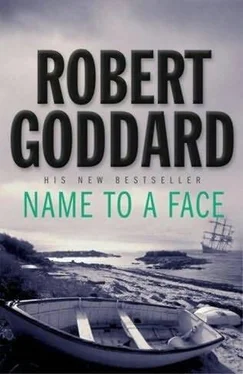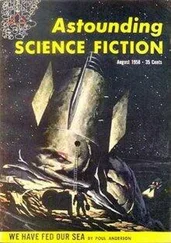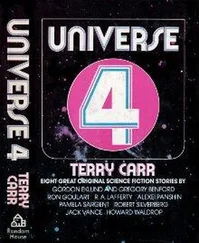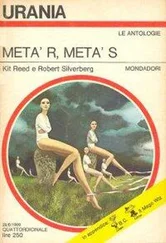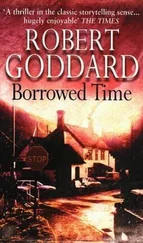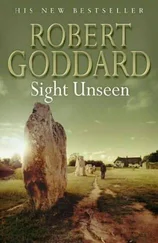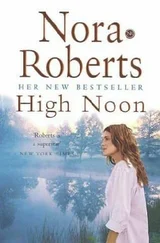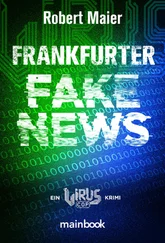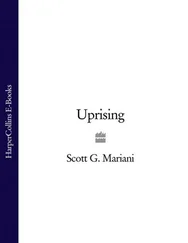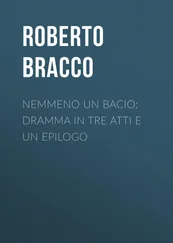“And they were both on board?”
“They were. This is their place just coming up. Pregowther Farm.”
Metherell turned right into a hedge-screened farmyard. A four-square granite and slate farmhouse stood in front of them, flanked by corrugated-iron-roofed outbuildings in various stages of disrepair. Broken ladders, gates, fencerails and rusty harrows filled one corner, while chickens were pecking and bobbing in the long grass that encroached at another. A track led out of the yard into a daffodil field, beyond which several more daffodil fields sloped down and away towards the sea. A crudely written sign declaring bulbs for sale had been propped against the doorpost of one of the barns. But of sales staff there was no sign.
“The Martyns are one of Scilly’s oldest families,” Metherell remarked as he turned off the engine and they climbed out. “A Robert Martyn settled here in the fourteenth century.”
“Ray mentioned you’re something of an historian.”
“Hard not to be, living here. Everything’s closer on a small island. Even the past.” Then he added, apparently as an afterthought: “Perhaps especially the past.”
They walked to the front door of the farmhouse. A drift of pop music, distorted by a slightly off-signal radio, reached them from within. It cut off as soon as Metherell rapped the knocker.
The door was answered a few seconds later by a frizzy-haired, moon-faced, scarlet-cheeked young woman dressed in cropped trousers and a smock top stretched round a distended stomach. She looked at least six months’ pregnant and was breathing heavily.
“Hello, Josie,” said Metherell.
“Hi, Mr. Metherell,” Josie panted cheerily in reply.
“Alf in? Or the father-to-be?”
“No. They’re both at the boatyard. They lavish more care on the Jonquil than they ever do on me.”
“I’m sure that’s not true.”
“You ask Fred and see if he doesn’t blush when he denies it.”
“Maybe I will.”
Josie laughed. “Well, if you want to catch them, they’ll likely be there till tea-time.”
“OK. Thanks. Mind if we leave my car here and walk down through your fields to the beach?”
“Be my guest.”
“There’s something on the beach I want to show you before we drive over to the boatyard,” Metherell explained as he led the way at an ambling pace along the track that formed the edge of the Martyns’ daffodil fields. It led down through a succession of open gateways towards a broad and rocky bay, into which the sea was rolling and foaming. “You might as well see it while we have the chance.”
“It’s the video I was really interested in,” Harding tentatively objected, fearing that he was being ever so subtly sidetracked.
“What did Ray tell you about the Association? ” Metherell pressed on.
“That it sank among the Western Rocks in, er… 1707.”
“Correct. The bay ahead of us is Porth Hellick, where a lot of the bodies were washed up.”
“Really?”
“Including that of Admiral Sir Clowdisley Shovell. I’m writing a book on the disaster.”
“So Ray said.”
“It’s as good as finished. Due out in October of next year, for the tercentenary It’s a tricky business, though, judging when you can safely sign off on a project like that. There’s always the possibility that some new discovery might be made.”
“After three hundred years?”
“That’s the thing with the Association story. It seems to have tendrils that keep on growing. Shovell was in command of a fleet of twenty-one men-of-war returning to Portsmouth from operations in the Mediterranean. It was the primitive navigational methods of the time that did it in for him. Principally the impossibility of accurately measuring longitude at sea. Three other ships went down that night. About fourteen hundred men were drowned and a fortune in gold and silver coin was lost. The disaster prompted the Government to put up a prize for a solution to the longitude problem.”
“Won by John Harrison with his marine chronometer.”
“Bravo, Mr. Hardy. You evidently know all about this.”
“Far from it. I read a book about Harrison once. But I must have missed the Association connection.”
“Well, there it is. The disaster was to have historic consequences, little comfort though that would have been to the fourteen hundred who drowned. The wreck of the Association was finally located in 1967. Cue rival teams of divers swarming all over it in search of treasure. Lots of headlines. Lots of interest. Which naturally I’m hoping will be revived next year. New revelations would do my book no harm at all.”
“Do you expect any?”
“You never know, Mr. Hardy. You never know.”
They had reached the last field before the beach. No daffodils were being cultivated here and there was no hedge beyond it to break the wind that met them full in the face. The bay was a deep scoop out of the coast, the surf surging in round craggy black arms of rock.
“Porth Hellick is a natural sump for wreckage blown in on a sou’wester,” said Metherell. “Imagine what it must have looked like here the morning after the disaster, with bloated corpses dotted across the sand. Sir Clowdisley’s among them, of course. There’s a stone marking the spot where he was found.”
Metherell pointed to a rough granite block set on a plinth at the edge of the beach. They walked across to it and Harding looked down at the inscription.
THIS STONE MARKS THE PLACE WHERE
THE BODY OF ADMIRAL OF THE FLEET
SIR CLOWDISLEY SHOVELL WAS WASHED
ASHORE AFTER HIS FLAGSHIP
H.M.S. ASSOCIATION WAS WRECKED
ON THE GILSTONE ROCKS
ON THE NIGHT OF 22ND OCTOBER 1707
“There’s a rather gruesome legend concerning the discovery of Sir Clowdisley’s corpse,” said Metherell.
“Oh yes?”
“The story goes that a local woman was first on the scene. Taking a fancy to a ring the admiral was wearing, she tried to steal it from the body, couldn’t dislodge it and so cut off the finger along with the ring.”
“A ring?” Harding looked round at Metherell, whose smile had suddenly acquired a mischievous tinge.
“Yes. A rather fine emerald ring, apparently. Set with diamonds.”
Why don’t we put our cards on the table?” Metherell’s smile broadened as he propped one foot on the plinth of the Shovell monument and held Harding’s gaze. “Your name’s Harding, isn’t it, not Hardy? You’re the chap Clive Isbister tells me Barney Tozer’s sent over to buy a cherished family heirloom at tomorrow’s auction. Lot 641. An emerald-and-diamond ring in a starburst box, hallmarked 1704.”
“All right.” Harding summoned some kind of smile himself. “You’ve got me. I’m Tim Harding.”
“The question is: why are you interested in Kerry Foxton?”
“Well, I, er…”
“Would I be right in surmising you were disturbed by the rumours of foul play that reached your ears in Penzance and decided to find out if there was any substance to them?”
“Yes.” Further denial seemed pointless. “You would be right.”
“I quite understand. Barney might not approve. Hence the alias. Well, don’t worry. He won’t hear of our meeting from me. He’s a man even his friends find hard to trust completely. A bit of a chancer, to be brutally honest. But not a murderer.”
“I’m glad to hear it.”
“As for the ring, you needn’t worry about that either. I shan’t be bidding against you.”
“Do you really think it’s the same ring that was stolen from Shovell’s body?”
“No. As a matter of fact, I don’t. Put simply, it can’t be. I’ll explain why not as we walk back.”
Читать дальше
